I spent the morning of my birthday working in my gardens: noting which plants were returning with vigor, which plants were spreading out of control, and which had been happily discovered by the neighborhood bunny, as well as deer, which frequent our yard. Alas, hostas are their favorite, and so far, the deer repellant is only keeping me out of the yard. Solely because of the stench. A stench that our dog finds irresistable. To suck in through his nostrils. Roll in obsessively. And run around the yard in celebration, obviously believing he has made himself that much more attractive by coating his white fur in deer poo.
It is not attractive. Nor cute, or even funny. While it hinges on disgusting, I try not to bruise Merlin’s ego. From a distance, I smile at him. He takes notice. Charges at me, and then (thank goodness) veers to the side as if egging on a chase. And so I go for the goal. I dash after him (around the property twice), trap him in my arms and hold him as far away from me as possible. Not far enough. And definitely too close to the mail lady who drives down our driveway at exactly that moment to deliver a package. And two rejection letters. With one whiff of the dog, she tosses our mail and makes a run for her truck.
I should be so lucky.
Bathing begins. Water. Soap. Conditioner. He shakes his fur out. Sprays me. And still stinks. I put him back in the tub. Tell him not to jump out. Or else. Open the rejection letters. Read them with no time to moan because I am dealing with life and poo. And . . . there are open invitations to submit more of my work. And a couple of good suggestions about reworking the manuscripts.
Then I remember Merlin. He hangs on the edge of the tub looking quite small and sad, and wanting very much to escape. Back to the spots of poo, I am sure. We repeat the bathing process until his scent is what I call manageable. After filing the letters in my sacred rejection binder, I return to the gardens.
With a kerchief around my nose, I begin to add fresh dirt to the flower beds. It is a long and tedious process, and I find myself getting distracted by the vines overhead, choking the trees. And soon, I find that this is what I am doing: tackling the invasive weeds. 
 From the ground, they extend sixty feet above my head in various patterns. They have found their way into the birdhouses: the first place I rid my yard of these unwelcome plants.
From the ground, they extend sixty feet above my head in various patterns. They have found their way into the birdhouses: the first place I rid my yard of these unwelcome plants.  Above my head, squirrels scamper across the ropes of vine, leaping from tree to tree. I feel small and weak when I study the extent of their existence. I want them gone.
Above my head, squirrels scamper across the ropes of vine, leaping from tree to tree. I feel small and weak when I study the extent of their existence. I want them gone.
No more, I think, and begin to pull. Yank, and bear all my weight against the base of one vine. Thorns cut through my gardening gloves, but I persist. Bring it on! Hand over hand, I tug hard against the rope. Step backwards. Bend my knees. Shake the beast. Move to the left. Then the right. Widen my stance and . . . Voila! One down, which doesn’t seem to make a difference.
I take off my gloves. Pull out the thorns and go in with a vengeance. Dead tree branches are precariously perched above my head, entangled in the vines. Please don’t come crashing down on me, because if they do, and my daughter is the paramedic on call, she is going to be really peeved at me. She’s already been the EMT on scene when I flipped a car on black ice, only to be trapped upside down until they could cut the car apart. I still have flashbacks when I hear the sirens of a fire truck.
With this memory still strong, I lean back, study the dead branches, and decide to not be so careless. I pick another site and put my fighting mentality to work. Hoping for the best, I throw my weight against one of the larger vines. It is tenacious. Fifteen minutes later, I am nearly swinging like a monkey on the darn thing just to get it to fall down. It doesn’t, but I do. Sitting on my bottom, I try to understand why I need to pull these vines down. More than the yard having a better appearance. Beyond rescuing the trees from what looks like strangulation to me, it is about why I need to do this.
The fight within me to battle the weeds has subsided for the moment. And in its place comes a deeper understanding related to my writing. In particular, one of my newer middle grade novels. My protagonist adores something, and when the item is destroyed at the paws of her cat, she becomes intent on fixing them. She is funny and strong-willed, but I always felt something was missing. Until today. Until I was obsessed with those darn vines, which I was meant to struggle with because of where it led me.
While E.B. Louise makes me laugh, and is a pleasure to wake up to, and work on in the morning, the story is deeper than I imagined. Until I tackled the vines and was faced with asking myself, Why am I compelled with pulling down these weeds? I didn’t truly understand.
The stench of the deer repellant permeates our yard. Flower beds await my return. Vines dangle from the trees. Merlin paws at the door to be let out. Off come the gloves while I run to the house.
Yes, the vines will still be here. The dog will once again rub in deer poop. Rejection letters will arrive in my mail. But what matters is that I now have a clear understanding of why my protaganist needs to fix her beloved slippers. It is, after all, the heart of the piece.
So if you ever find yourself compelled to do something, stop and ask yourself why. You never know what you might discover.
And for those people interested in the gorilla photos I promised, go to www.normanthegorilla.wordpress.com
Happy discoveries to all!





















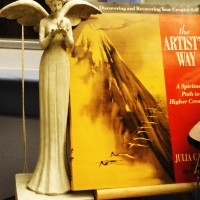

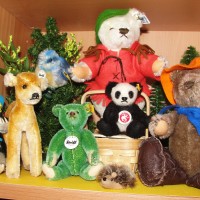
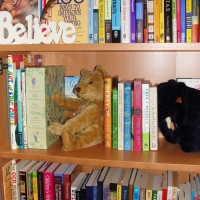
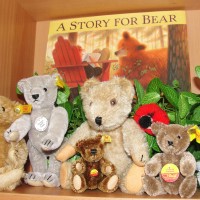
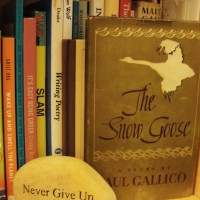

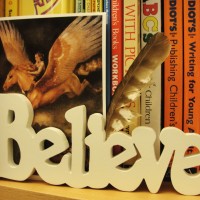
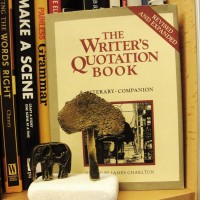
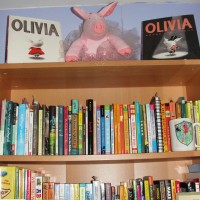
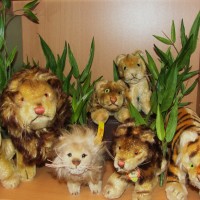


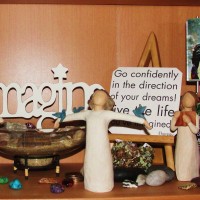
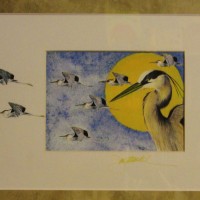




 Our tree was not far from that view. A tree we carried down the mountainside in the dim light. The girls led us in singing carols, and even when we slipped (more than once), we kept our spirits high. For we had found a tree, and whether or not it was indeed the most perfect of trees, the joy was in the journey.
Our tree was not far from that view. A tree we carried down the mountainside in the dim light. The girls led us in singing carols, and even when we slipped (more than once), we kept our spirits high. For we had found a tree, and whether or not it was indeed the most perfect of trees, the joy was in the journey. 




